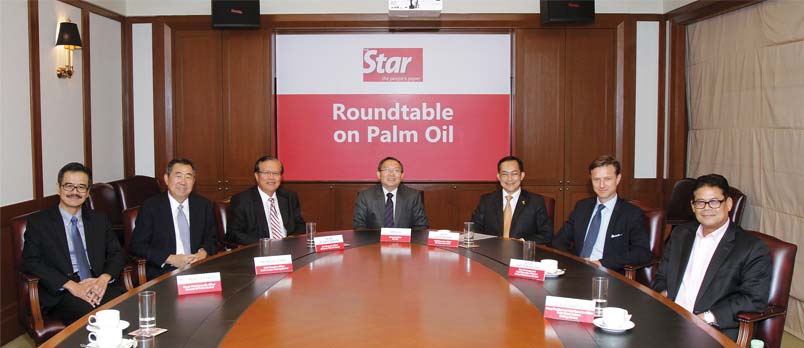



From an unknown to a global commodity
February, 2017 in Issue 1 - 2017, Markets
MSPO cerfication
Dato’ Lee said the MSPO could be a game-changer for the domestic palm oil industry, in terms of sustainability:
“It has been about two years since the MSPO was introduced, but being voluntary and having insufficient promotion, there has been lukewarm response from producers. Nevertheless, I believe a certification system administered by the government – with a good set of domestic laws to support and govern the planting industry, and that has entered into a number of international conventions on the environment, labour, standards and others – is a potentially good scheme.
I do think MPSO certification should be made mandatory. Having said that, there are now several certification schemes breaking into the country, the most prominent being that of the Roundtable on Sustainable Palm Oil (RSPO).
Many of us are on RSPO certification, especially the larger companies. Having to go through many certification schemes at the same time can be quite onerous on planters, who are already having a tough time managing their plantations.
So while I advocate that the MSPO be made mandatory, it has to take account of the requirements of all the different certification systems and streamline its procedures for those who have obtained certification under other schemes.”
Tan Sri Yusof pointed out that the MSPO can be a strategic process to allow for mandatory certification of sustainable palm oil.
“The proper protocol is still being designed to ensure its implementation meets international standards, while allowing for affordability to all segments including smallholders.”
Paul Wong said his company is 50% MSPO-certified and will be 100% certified in 2017:
“The MSPO is a national standard and it would good if we could present ourselves as a nation that has a stringent set of sustainability standards. At the same time, I do not view the MSPO as competing with the RSPO. They can co-exist and complement one another. It is not that one is better than the other. Both standards should serve their purpose.
When I talk about the MSPO as a national standard, it has to be accepted by all parties – consumers, buyers and trade partners. This is something that the MSPO has to work on. The RSPO, of course, gives us access to certain markets like Europe. So as I said, the two standards should co-exist, but for different reasons.”

Tan Sri Lee disagreed, saying that producer countries cannot be seen as auditing themselves:
“Consumers want an independent body and they have a say because they are paying for our products. I am not downplaying the MSPO, but our first priority is undoubtedly the RSPO. I think Malaysia and Indonesia should both support the RSPO because you cannot have a fragmented industry, where everyone holds to a separate set of standards.
Having said that, I also think it is the right of every nation to have its own sustainability scheme to regulate or to help certain segments of the industry which are not as progressive.
We would like to see the MSPO being realistic. If a company is already RSPO-certified, you should allow exemptions on certain modules. For areas not covered by the RSPO, you can audit us on that. In that way, the MSPO can spend its time bringing the rest of the industry together to the same standards as the bigger plantations.
Today, the plantation companies are getting some premium from the sale of sustainable oil, but how do we share this with smallholders? This should be another priority for the MSPO scheme. They can negotiate with the RSPO, and if smallholders get through the requirements and supply fresh fruit bunches to your mill, then some of this premium can be passed on to them. The role of the MSPO should be to create value and not just to impose regulations and tie us down.”
Dato’ Bek-Nielsen agreed, saying that it was all about credibility. He noted that the MSPO does not need to compete with the RSPO and should in fact work together to improve the image of palm oil:
“This is about credibility and, whether you like it or not, you need to have the endorsement of NGOs in order to do business in certain markets.
The MSPO has a huge role to play, particularly within the smallholder segment. Today, 40% of Malaysia’s palm oil is produced by smallholders. In Indonesia it is just over 50% and in Thailand it is 80%.
The MSPO can lean itself against the United Nations Fair Trade mechanism and help smallholders improve on agricultural standards, yield, well-being and ultimately, their livelihood. That is what we want and this would give more credibility to the MSPO.
So yes, I am in support of the MSPO being made mandatory – but not for companies that already have RSPO certification. We should not try to over-regulate or make it more bureaucratic for the industry. We are busy enough as it is, with managers and engineers suffering from paper overload in what is supposed to be a paperless society.”
MPOC
Additional material for this edited article was sourced from The Star, Dec 3 and 5, 2016.